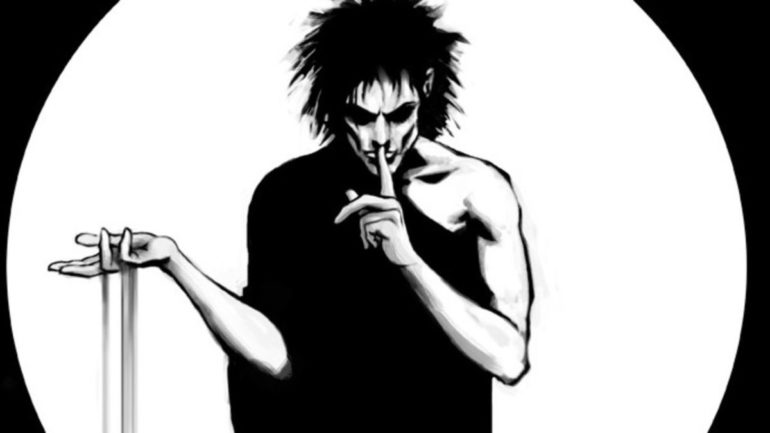While so far it’s Neil Gaiman’s books that have seen adaptations on screens both big and small, beginning with Stardust back in 2007, and more recently the literally god-bothering series American Gods and Good Omens, Gaiman’s always been a comic man at heart.
And, true to form, there was talk of adapting Gaiman’s multi-award-winning comic series The Sandman for the screen in the ‘90s, long before Stardust. It never happened because of his well-founded fears that it wouldn’t be done right.
One particularly egregious attempt came from producer Jon Peters, who commissioned what Gaiman described as “quite easily the worst script I’ve ever read” and demanded that the film include a giant mechanical spider, something Peters also tried to shoehorn into the ‘90s Superman films before finally achieving this dream in the Will Smith vehicle Wild Wild West.
(Peters, as befits a man who uses his position of power to try and squeeze things in for his own personal gratification, has since been #MeTooed.)
But now there’s talk of Netflix and Warner Bros. hammering out a deal to finally create a Sandman television series. Neither outfit has passed any official comment on this, but it’s already been reported that Allan Heinberg (The Catch, Wonder Woman) is attached as a writer and showrunner, with David Goyer (Constantine, Flashforward) and Gaiman himself as executive producers – and that they’ve got an unspecified but hefty budget to play around with.
Now it’s so close to happening, we return to the core issue, which is why people had such difficulty trying to adapt it in the first place, and this can’t be all put down to Jon Peters’s insane spider obsession. While American Gods and Good Omens aren’t what you’d call particularly conventional stories, they’re practically whitebread compared to The Sandman, whose main character, Morpheus, is the anthropomorphic personification of dreams. If you’re a Rick and Morty fan, you may recall him showing up in a flashback running around in M.C. Escher’s ‘Relativity’, the usual signifier of ‘here are things the human mind cannot comprehend’.
Much like Rick and Morty, The Sandman was wont to go hopping between planes of both reality and surreality, as well as in and out of beloved stories – and ‘stories’, here, includes all world religions. This isn’t a nu-atheist ding against religion, more an illustration about how The Sandman is a story about stories. Geoffrey Chaucer and William Shakespeare show up as minor characters, with Morpheus influencing the creation of some of their more famous works, and while this doesn’t take it to a dusty, academical place, it’s not exactly something that holds the casual audience’s hands either.
(Although certain aspects of the comic that were considered outlandish back in the late ‘80s/early ‘90s, like sympathetic treatment of gay and trans characters, are a bit more mainstream today.)
At a comic-con in 2007, Gaiman noted that to adapt the series properly, “we need someone who has the same obsession with the source material as Peter Jackson had with Lord of the Rings or Sam Raimi had with Spider-Man”. Usually this could be written off as a creator being protective of their work, but here it’s more like a minimum entry requirement, given the density and complexity of the original.
Some of the coverage you find on Cultured Vultures contains affiliate links, which provide us with small commissions based on purchases made from visiting our site. We cover gaming news, movie reviews, wrestling and much more.



